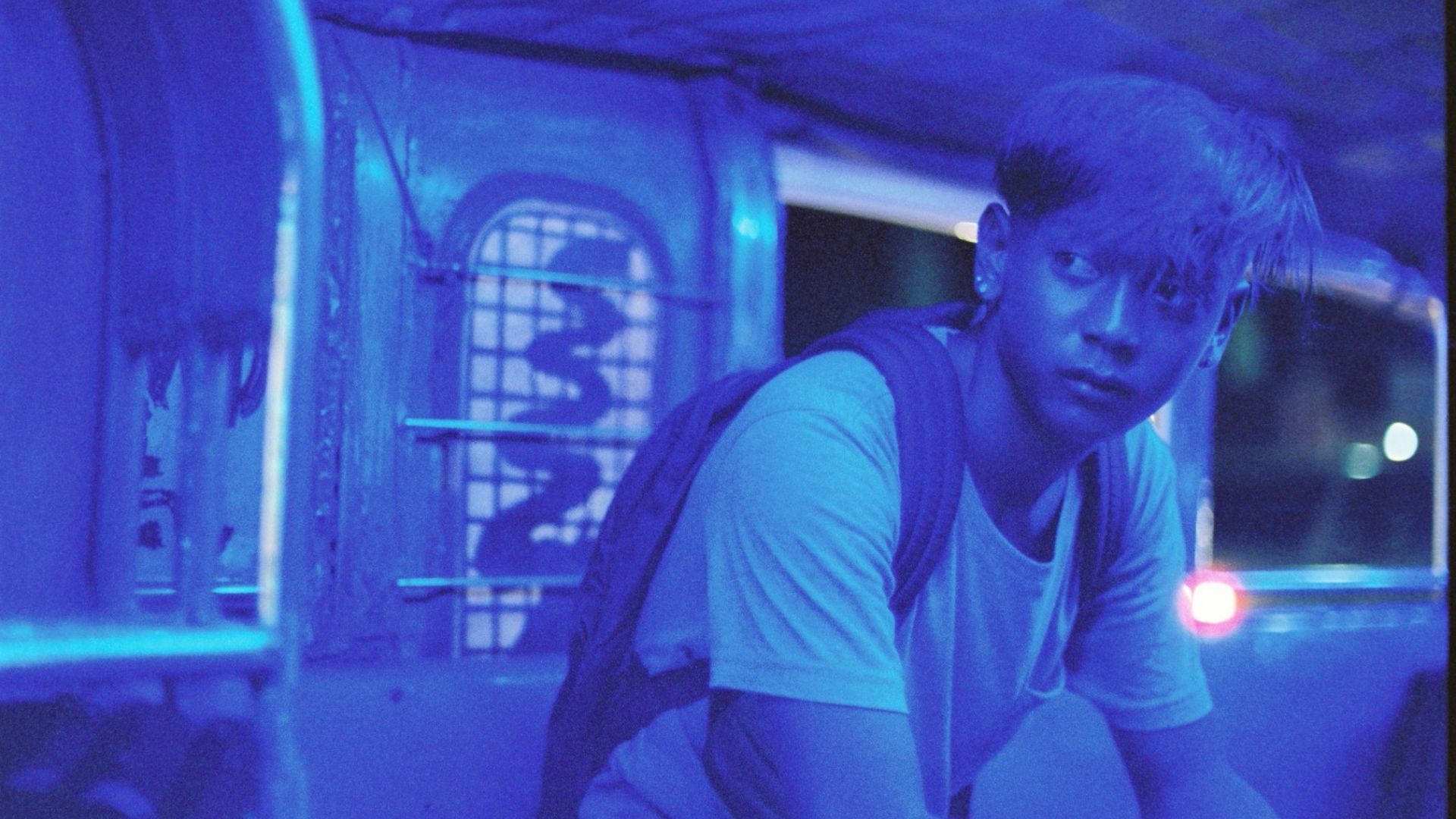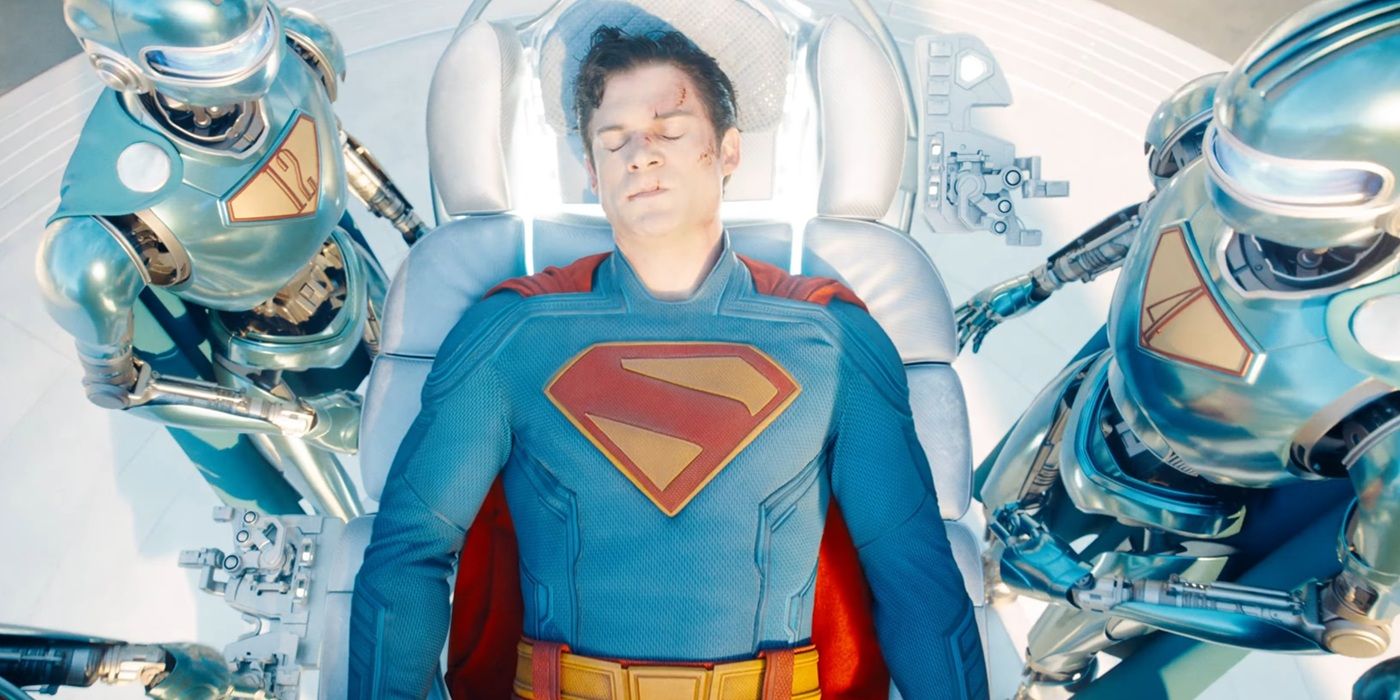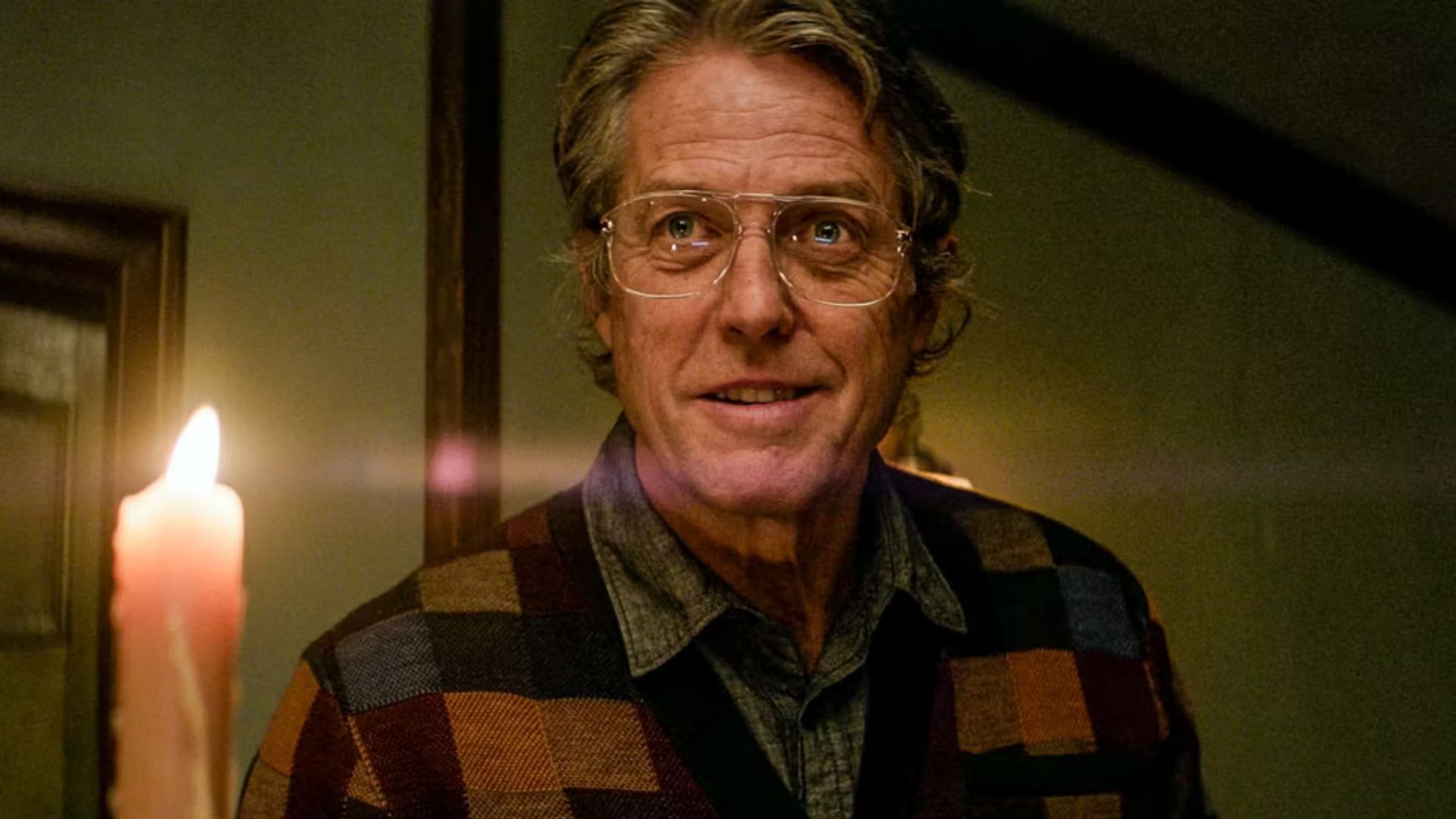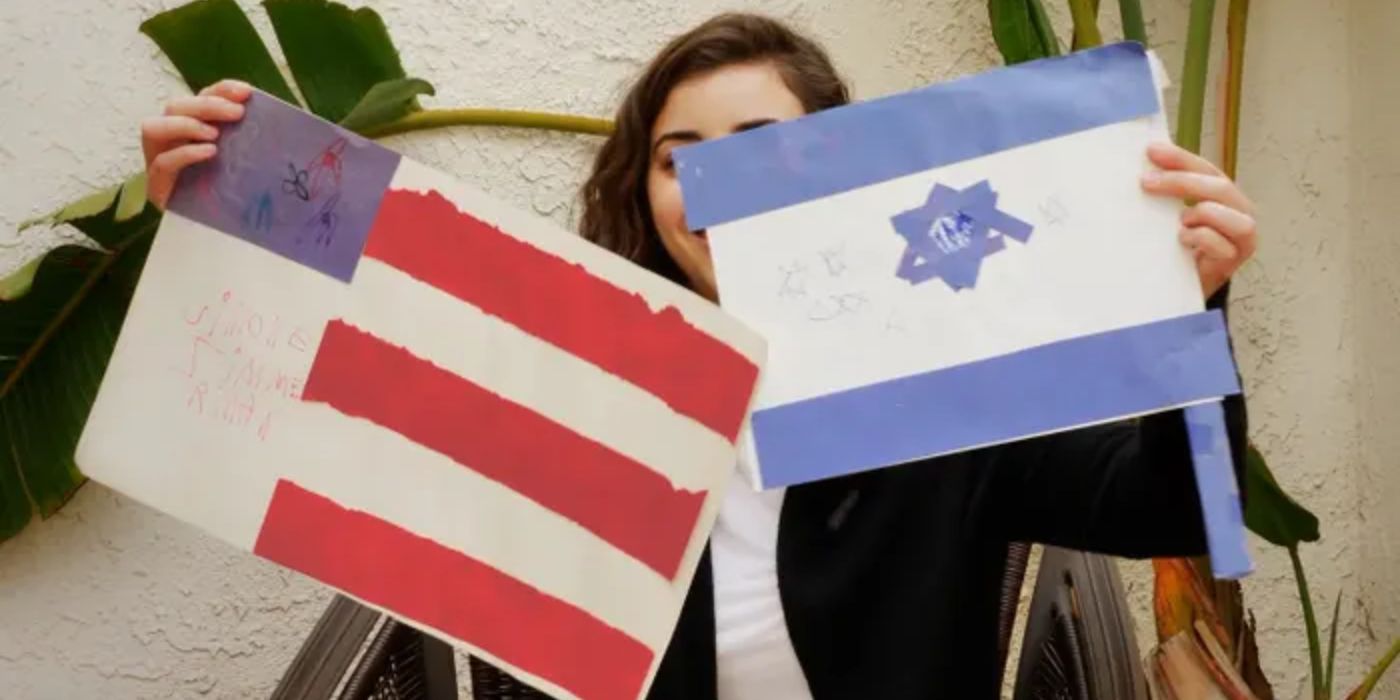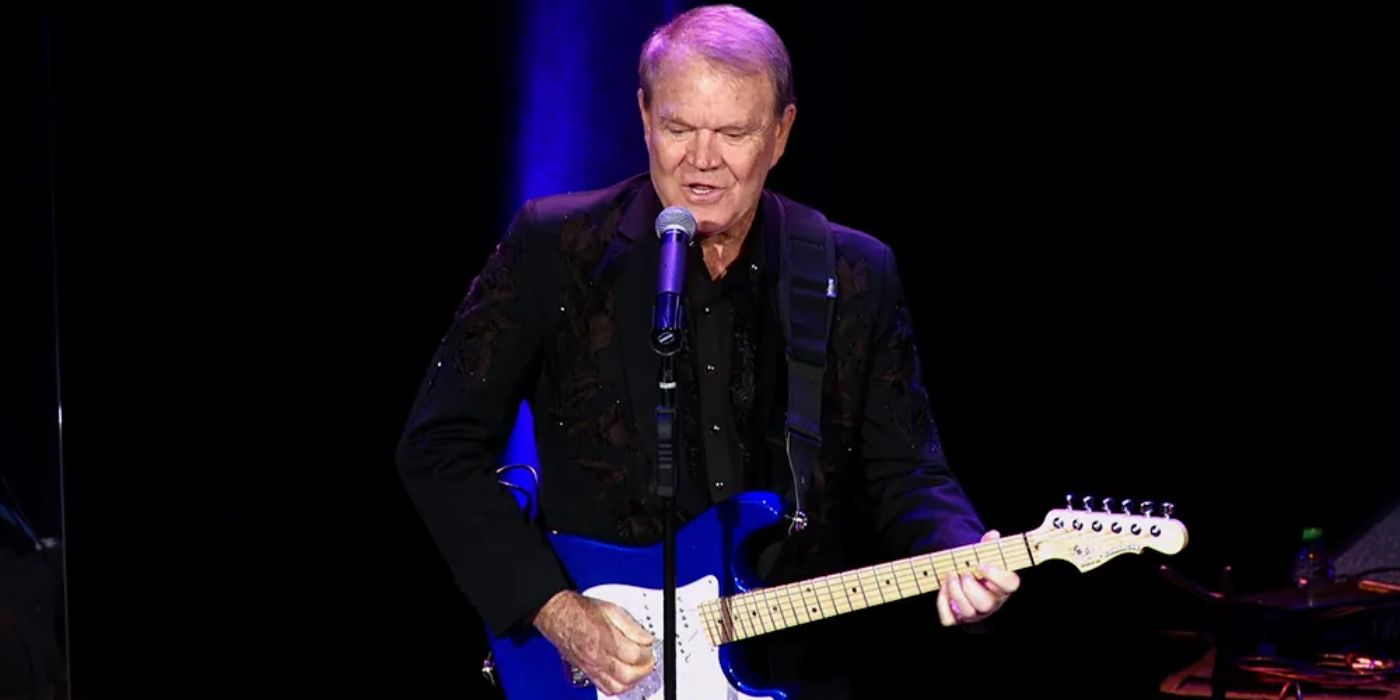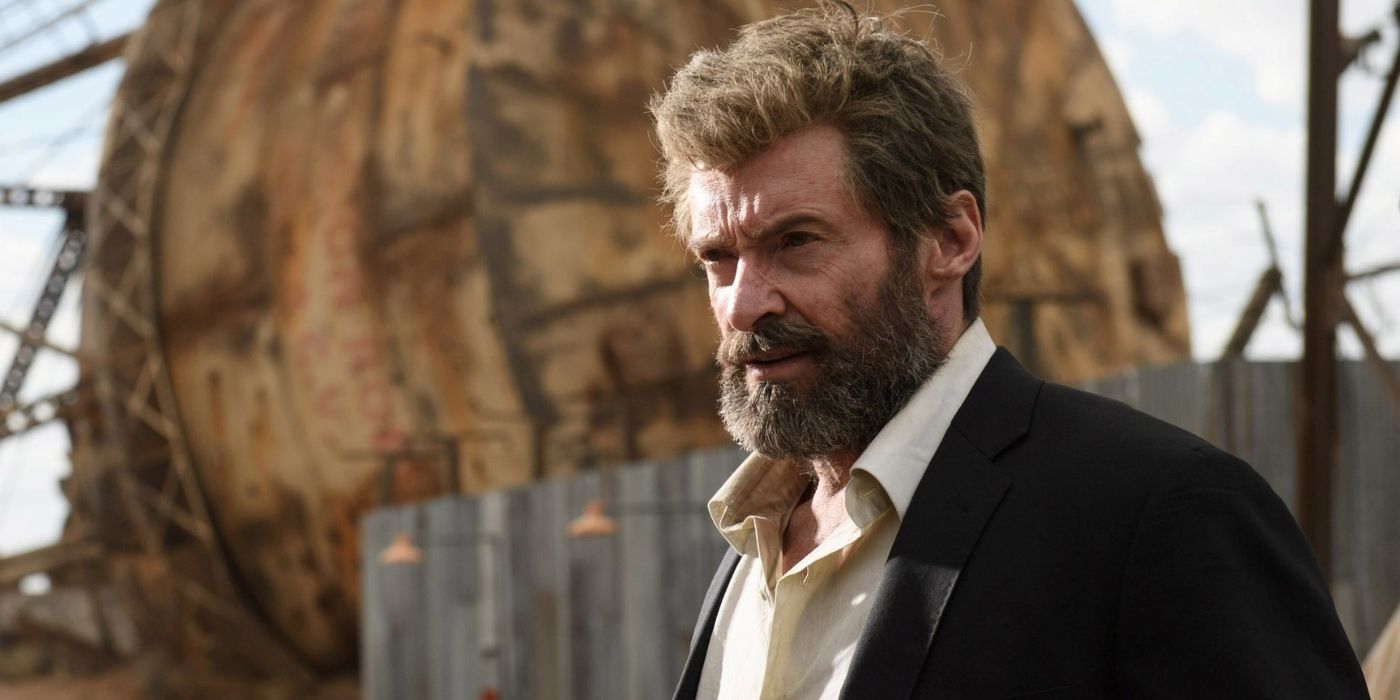Sometimes, the scariest thing isn’t the possibility of a zombie outbreak, a werewolf, or a vampire —it’s being confronted by the flaws in everything you believe, and realizing you may be a pawn in a game you never consented to play. Writer/directors Scott Beck and Bryan Woods take a big detour from their work on A Quiet Place and 65 with their latest film, Heretic, a far from prototypical horror movie. At least for the bulk of Heretic’s runtime, the narrative is a stage-like, elegant philosophical joust between three characters. Although the film might lean into conventional horror stylings in its third-act attempt to address the interesting questions it poses, the misstep is not enough to knock it off its relatively confident axis.
It’s important to note that Beck and Woods are not necessarily using Heretic as a vehicle to say religion is bad. Instead, they utilize this story to place a microscope on those who may have shaped those belief systems into something as a construct to keep metaphorical hamsters running on the wheel for their own solitary gain.
Related: Best Movies with Religious Themes, Ranked
An Elegant but Stage-Like Theological Conversation
On one particular day, two Mormon missionaries of the Church of Jesus Christ of Latter-Day Saints, Sister Barnes (Sophie Thatcher) and Sister Paxton (Chloe East), aren’t having the best of luck finding willing subjects to hear their pitch. Some girls even make fun of Paxton for wearing “magic underwear.” However, their luck is about to change, because a man named Mr. Reed (Grant) has accepted to hear more information and invites them in from the rain.
Related: Exclusive: Prehistoric Survival with Scott Beck and Bryan Woods in 65
In their glee, the Sisters ignore a vital piece of information once they discard their proclivities and enter Mr. Reed’s house for a discussion. Here, Sister Barnes and Sister Paxton think they are going to lead the discussion and get Mr. Reed and his wife signed up for the Latter-Day Saints starter pack, but alas. Within the first few minutes of their talk, it’s clear that Mr. Reed is geared to turn the discussion into an overall excoriation of blind faith. If anything, Mr. Reed seems to know more about the Book of Mormon and its author, Joseph Smith, than they do – going so far as to point out the changes in the church’s views on polygamy.
Hugh Grant Continues His Great Career Twist
As each side becomes more entrenched in explaining their positions, another story involving Chung-hoon’s cinematography is happening. Heretic is mainly confined to a small house with a certain number of rooms, but everything is presented in a style with a life of its own. On the outside, the weather becomes even more unsettled as the mystery continues. Mr. Reed’s rooms are designed in a way that imposes judgment on those who happen to take him up on his invitation. It almost feels like a haunted house.
For Grant himself, the role of Mr. Reed feels tailor-made for him. He’s able to chew through a lot of dense exposition and information in a pseudo-sarcastic way, keeping you entertained and wanting more. There’s a specific point in Mr. Reed’s diatribe when he connects Monopoly, fast food, and The Hollies’ 1974 hit “The Air That I Breathe” into an argument about religion. While it’s not entirely new, and obviously overly chatty, it’s still riveting how Grant delivers the information and how Beck and Woods tailor the story. Heretic proves that Grant is still at the top of his game following several other fantastic, off-kilter performances.
Heretic Seems to Give Up and Wants It Both Ways
This narrative wouldn’t ultimately work if Grant didn’t have great foils to his character. That’s where Sophie Thatcher and Chloe East come in – who initially feel like mirror images of one another. As Heretic dives into the small amount of history the film gives you (particularly for Sister Barnes), Thatcher and East begin to show their differences as Grant’s character continually tests them. The weight of the conversation seems to shift one woman’s balance more than the other. To Beck and Woods’ credit, everything proceeds organically and the dynamic alters enough to keep the audience guessing.
Related: A Quiet Place Writers Talk John Krasinski Collaboration, Sequel & More
Unfortunately, Heretic arguably takes the easy way out of its ever-evolving and increasingly unsettling conversation, opting for tried-and-true horror solutions rather than committing to its own iconoclastic intellectual methods. Perhaps that’s inevitable; this is a movie and not systemic theology, after all. Heretic may make you realize that maybe we can’t or will never get an answer to questions like, “what happens after we die?”
As such, it’s understandable that the film wants to have it both ways, unleashing the possibility that all the prayers we’ve ever sent are suspended in space, while still leaving room to think those prayers could reach their intended higher power. The choice will ultimately be up to you, and the ride to get to that point is well worth the trip.
,
You can view the original article HERE.


